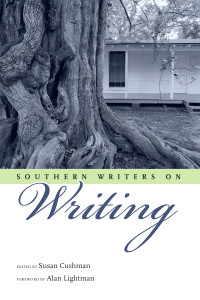 I hope you’ve been following my series of excerpts from SOUTHERN WRITERS ON WRITING (coming from University Press of Mississippi in May), but if you’ve missed them and would like to catch up, here they are:
I hope you’ve been following my series of excerpts from SOUTHERN WRITERS ON WRITING (coming from University Press of Mississippi in May), but if you’ve missed them and would like to catch up, here they are:
Sneak Previews 1 (featuring Neil White, Alan Lightman, Jim Dees, and Joe Formichella)
Sneak Previews 2 (featuring Harrison Scott Key, Cassandra King, Corey Mesler, and Patti Callahan Henry)
Sneak Previews 3 (featuring Sonja Livingston, Sally Palmer Thomason, Julie Cantrell, and Katherine Clark)
This week I’ll bring you a few delicious bites from several more authors whose essays are featured in Section III of the anthology, “Place, Politics, People.” If you like these excerpts, click on the authors’ names to read more about them and their books.
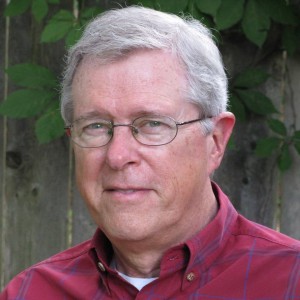 Perhaps the biggest reason for the abundance of authors from the South, however, is this: Southern kids grew up listening to a lot of different people tell stories…. I can recall sitting at their feet beside the bench in front of my grandfather’s gas station in Sallis, Mississippi, wide-eyed and gullible and marveling at their tales while they munched Nabs and Tom’s Toasted Peanuts and sipped RC Colas bought for them by my granddad from the Coke machine inside the hot but shaded office…. Did those stories influence me to later tell my own tall tales? Of course they did—especially my short small-town mysteries and their laid-back style. Did they make me a good storyteller? Maybe not. But they made me want to be a good storyteller. And the odds are with me. My native Mississippi is the birthplace of more published authors per capita than any other state, and the Delta town of Greenville has produced more published authors than any other city in the nation…. I also know this: In my travels I’ve been inside bookstores all across the nation, and I have yet to see a section labeled ‘Northern Fiction.’ Maybe that in itself, is revealing.—John Floyd, from “In the Land of Cotton”
Perhaps the biggest reason for the abundance of authors from the South, however, is this: Southern kids grew up listening to a lot of different people tell stories…. I can recall sitting at their feet beside the bench in front of my grandfather’s gas station in Sallis, Mississippi, wide-eyed and gullible and marveling at their tales while they munched Nabs and Tom’s Toasted Peanuts and sipped RC Colas bought for them by my granddad from the Coke machine inside the hot but shaded office…. Did those stories influence me to later tell my own tall tales? Of course they did—especially my short small-town mysteries and their laid-back style. Did they make me a good storyteller? Maybe not. But they made me want to be a good storyteller. And the odds are with me. My native Mississippi is the birthplace of more published authors per capita than any other state, and the Delta town of Greenville has produced more published authors than any other city in the nation…. I also know this: In my travels I’ve been inside bookstores all across the nation, and I have yet to see a section labeled ‘Northern Fiction.’ Maybe that in itself, is revealing.—John Floyd, from “In the Land of Cotton”
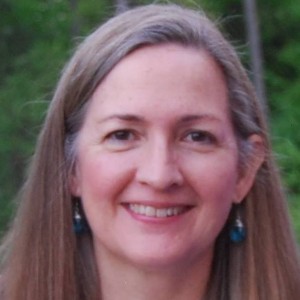 My study is geographically located in Alabama but psychologically apart from its churches on every corner, its conservative politics, its fascination with football, its pressure to conform as it pretends to treasure its eccentrics. As a writer I am in and of the South but also apart from it, more or less passing as I go about my daily life…. I have such ambivalence about this region that I write from. How do I critique with a loyal heart? How do I claim this ambivalence? Or as people sometimes ask me when I complain, which I do, why stay?…. Oh, I could move to a liberal enclave in the no-nonsense North, but I like a bit of nonsense, the playful linguistic meander down a silly conversational byway that can happen with stranger or friend alike, the shared acknowledgment of the perplexing absurdity of life that seems a lot more likely to happy here than elsewhere.—Jennifer Horne, Poet Laureate of Alabama, from “Where I Write”
My study is geographically located in Alabama but psychologically apart from its churches on every corner, its conservative politics, its fascination with football, its pressure to conform as it pretends to treasure its eccentrics. As a writer I am in and of the South but also apart from it, more or less passing as I go about my daily life…. I have such ambivalence about this region that I write from. How do I critique with a loyal heart? How do I claim this ambivalence? Or as people sometimes ask me when I complain, which I do, why stay?…. Oh, I could move to a liberal enclave in the no-nonsense North, but I like a bit of nonsense, the playful linguistic meander down a silly conversational byway that can happen with stranger or friend alike, the shared acknowledgment of the perplexing absurdity of life that seems a lot more likely to happy here than elsewhere.—Jennifer Horne, Poet Laureate of Alabama, from “Where I Write”
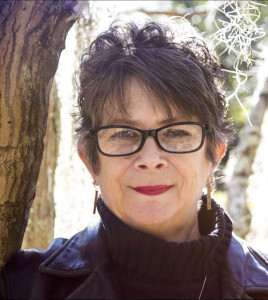 The best advice I could give an aspiring writer at this particular and disorienting moment in publishing history is: just do it yourself, by gum—with a couple of very reliable readers who won’t lie to you (your mother is out, for example), a damn good editor, and a goddamn good line editor. Pay your editor well and your line editor even better, don’t quibble over every little change to make, and do everything else on social media…. Which brings me back around to Cris Mazza’s delightfully middle-fingered question: “What does one ‘win’ in art?” A better contract? A big advance? A growing fan base? Am I impractical and naïve to scorn the greed that is baked in to most business ventures? When I take pride in the fact that I suck at capitalism do I worry about alienating potential investors? What if I never get picked up by a big publishing house?… I have ceased to give a good goddamn.—Suzanne Hudson, from “The Sordid Business of Writing”
The best advice I could give an aspiring writer at this particular and disorienting moment in publishing history is: just do it yourself, by gum—with a couple of very reliable readers who won’t lie to you (your mother is out, for example), a damn good editor, and a goddamn good line editor. Pay your editor well and your line editor even better, don’t quibble over every little change to make, and do everything else on social media…. Which brings me back around to Cris Mazza’s delightfully middle-fingered question: “What does one ‘win’ in art?” A better contract? A big advance? A growing fan base? Am I impractical and naïve to scorn the greed that is baked in to most business ventures? When I take pride in the fact that I suck at capitalism do I worry about alienating potential investors? What if I never get picked up by a big publishing house?… I have ceased to give a good goddamn.—Suzanne Hudson, from “The Sordid Business of Writing”
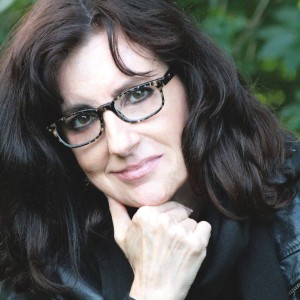 When I read a southern writer I can feel their heart beating. That’s how I know it’s southern. By the heartbeat…. Southerners draw from a well that is a mystical blend of raw earth and our peopled history. From the storytellers that bore us because all those that came before us were storytellers. And yes, the dirt. It always comes back to the dirt…. We came from the earth. Dirt beneath our druthers. Spit and venom, a whip of intention unleashed on page and pronoun. Turn the page of any story where southern meets you and there you feel it, the unmistakable heartbeat that will not be denied. What spins beneath us remains no mystery but courses through our veins. The earth beats and we feel it. The earth bleeds and we mourn it. Seed falls on good ground and we reap a harvest of words…. Cut us and we bleed story.—River Jordan, from “Dirt, Death, and the Divine: The Roots of Southern Writing”
When I read a southern writer I can feel their heart beating. That’s how I know it’s southern. By the heartbeat…. Southerners draw from a well that is a mystical blend of raw earth and our peopled history. From the storytellers that bore us because all those that came before us were storytellers. And yes, the dirt. It always comes back to the dirt…. We came from the earth. Dirt beneath our druthers. Spit and venom, a whip of intention unleashed on page and pronoun. Turn the page of any story where southern meets you and there you feel it, the unmistakable heartbeat that will not be denied. What spins beneath us remains no mystery but courses through our veins. The earth beats and we feel it. The earth bleeds and we mourn it. Seed falls on good ground and we reap a harvest of words…. Cut us and we bleed story.—River Jordan, from “Dirt, Death, and the Divine: The Roots of Southern Writing”
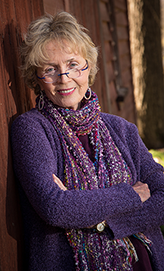 Writing is also my addiction, for the moment when I am writing fiction is that moment when I am most intensely alive…. For me, writing is a physical joy. It is almost sexual—not the moment of fulfillment, but the moment when you open the door to the room where your lover is waiting, and everything else falls away…. The most thrilling, of course, is when it is a first-person voice telling a story of real urgency. At these times, all I have to do is keep up; I become a stenographer, a court secretary, a tape recorder. My biggest job is making sure I have several uninterrupted hours whenever I sit down to write, so this can happen…. Of course writing is an escape, but it is a source of nourishment and strength, too…. Whether we are writing fiction or nonfiction, journaling or writing for publication, writing itself is an inherently therapeutic activity. Simply to line up words one after another upon a page is to create some order where it did not exist, to give a recognizable shape to the chaos of our lives.—Lee Smith, from “A Life in Books”
Writing is also my addiction, for the moment when I am writing fiction is that moment when I am most intensely alive…. For me, writing is a physical joy. It is almost sexual—not the moment of fulfillment, but the moment when you open the door to the room where your lover is waiting, and everything else falls away…. The most thrilling, of course, is when it is a first-person voice telling a story of real urgency. At these times, all I have to do is keep up; I become a stenographer, a court secretary, a tape recorder. My biggest job is making sure I have several uninterrupted hours whenever I sit down to write, so this can happen…. Of course writing is an escape, but it is a source of nourishment and strength, too…. Whether we are writing fiction or nonfiction, journaling or writing for publication, writing itself is an inherently therapeutic activity. Simply to line up words one after another upon a page is to create some order where it did not exist, to give a recognizable shape to the chaos of our lives.—Lee Smith, from “A Life in Books”
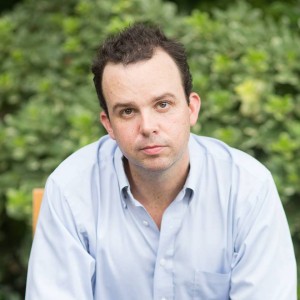 Flannery O’Connor, Barry Hannah—if you dig enough, you could probably find that every southern writer, present or past, has said something about the importance of place in her or his work. I have to admit, growing up in Louisiana and being inundated in that tradition, I got a little tired of it. I believed, instead, the great promise of fiction is that it is boundless, limited only by the writer’s imagination. I set my earliest stories in Ohio, Montana, Detroit—all places I’d never been. I felt pretty good crossing the Mason-Dixon in my head. That was two decades ago. Those early stories remain with me still, keeping each other good company in a folder on my computer called REJECTED…. Our best writers have a way of articulating the South so that it feels, at the same time, always alive and already past…. I wonder if we live, at all times, in the half-gone.—M. O. Walsh, from “On the Baton Rouge Floods of 2016 and My Nostalgia for the Half-gone”
Flannery O’Connor, Barry Hannah—if you dig enough, you could probably find that every southern writer, present or past, has said something about the importance of place in her or his work. I have to admit, growing up in Louisiana and being inundated in that tradition, I got a little tired of it. I believed, instead, the great promise of fiction is that it is boundless, limited only by the writer’s imagination. I set my earliest stories in Ohio, Montana, Detroit—all places I’d never been. I felt pretty good crossing the Mason-Dixon in my head. That was two decades ago. Those early stories remain with me still, keeping each other good company in a folder on my computer called REJECTED…. Our best writers have a way of articulating the South so that it feels, at the same time, always alive and already past…. I wonder if we live, at all times, in the half-gone.—M. O. Walsh, from “On the Baton Rouge Floods of 2016 and My Nostalgia for the Half-gone”
Great stuff here!! Wise writers abide in the South….
Thanks, Laurel. I’m reading your book THE VELVETEEN DAUGHTER and loving it! And while I agree that we’ve got a wealth of good writing that comes from the South, literary greatness is universal. Congrats on your American Historical Fiction Award!
Can’t wait to read the finished real book!! Good work Susan!!
Thanks, Emma! I’m hoping these sneak previews will make everyone feel that way! I’m really proud of this collection.